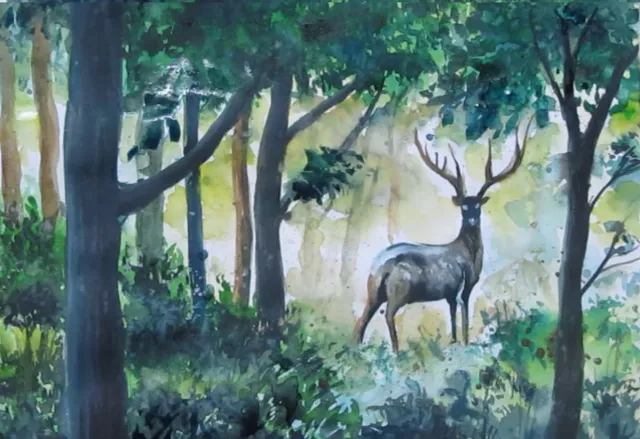
My first semester at Wesleyan I took then Prof. Ao Wang’s Introduction to Chinese Poetry class. The course had a large impact on me and my perspective about China. It was my first foray into Chinese literature and culture and, as such, was influential in how I thought about China’s history and society for early undergrad. From both the course content and our in-class discussions I gained a sense about the role of the individual in the tradition of art and literature, and also what that meant for our modern day-and-age. The start of college was also the start of my self-discovery, so, through key aspects of Chinese poetry and philosophy, as ways of life and learning, I think it played a part in my personal transformation. I could finally ground and learn from material that I was interested in and seeking. Combined with the COVID pandemic’s ongoing presence at the time, this course was also beneficial in providing solace from the crisis with these pieces of literature and art.
Prof. Wang highlighted individual expression and agency in the face of broader powers and forces. Obviously, the course focused on ancient Chinese poetry such as Li Bai, Du Fu, Wang Wei, the Tang and Song style poets, but also contemporary examples such as the misty poets, Bruce Lee’s philosophy, and the rock music of Cui Jian. Through this eclectic make-up, a strong sense of the role of the dissident and artist was highlighted in the Chinese historical canon.
I remember an impactful moment when we were assigned to translate Wang Wei’s poem “Deer Park” —
Original:
鹿柴 (王维)
空山不见人,
但闻人语响。
返景入深林,
复照青苔上。
My translation:
Empty mountains may never see us,
but hear us in their brush.
Illuminate their darkest corners,
find fizzling webs of green moss.
We read four precedents and learned about how the language could be read in many different ways. But the poem’s general themes of spirituality, nature, and peace were clear through them all. I translated it in such a way so as to craft a poem that honed in on the larger forest, showing how life exists in the margins. And this well sums up my experience with this course and its pivotal impact on my perspective. I think I was exposed to what life on the “margins” looked like historically and politically through the lens of Chinese poetry, and from this, it invigorated my continued search into religious and philosophical ideas in the context of East Asia.
Citation:
“Image accompanying ‘鹿柴 (王维) – Deer Park (Wang Wei)’.” From Meter to Meaning, December 24, 2017. https://frommetertomeaning.wordpress.com/2017/12/24/%E9%B9%BF%E6%9F%B4-%E7%8E%8B%E7%BB%B4-deer-park-wang-wei/.

Leave a Reply